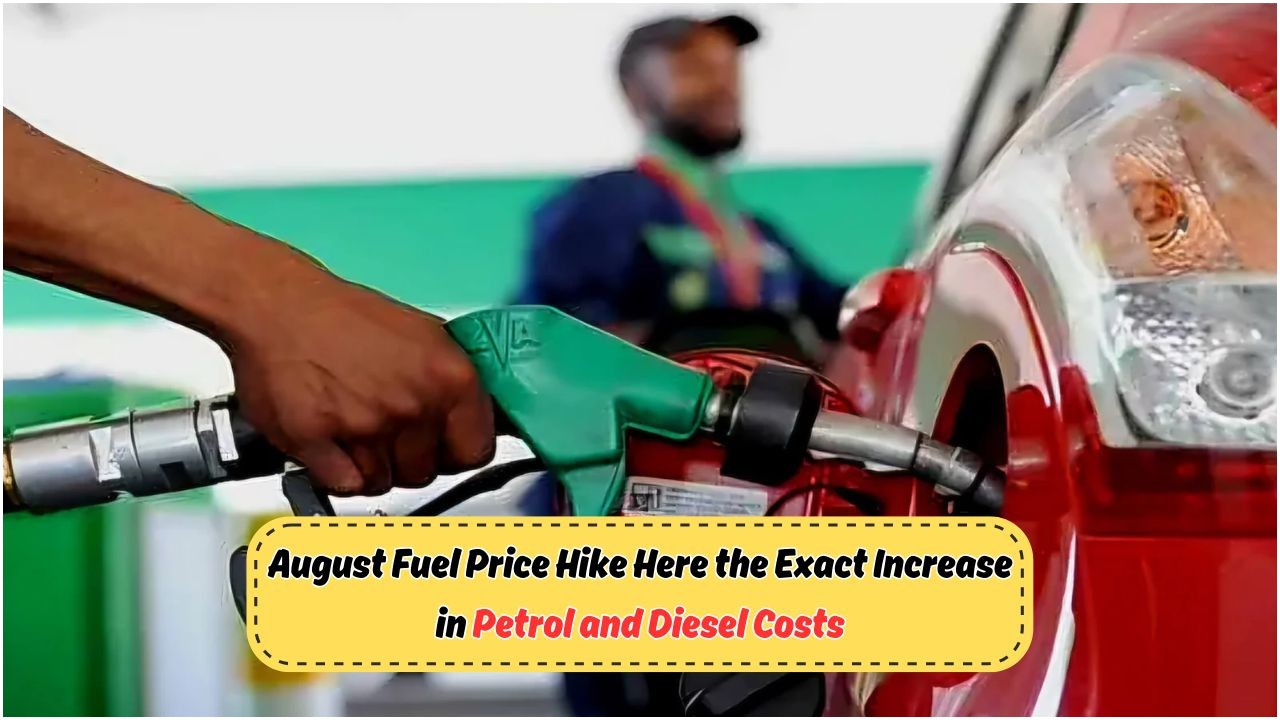August 2025 Petrol Prices in South Africa: As August 2025 unfolds, South Africans are witnessing a historic surge in petrol prices, causing financial strains for many households and businesses. The increases are attributed to a combination of rising global oil prices and fluctuations in the rand. With transportation being a significant expense for most South Africans, these price hikes are set to impact daily commutes, logistics, and the overall cost of living in the country. This week alone, motorists are recalibrating their budgets to accommodate the increased costs at the pump. The situation has sparked widespread discussions about sustainable alternatives and energy efficiency, as citizens seek ways to mitigate these unexpected expenses.
Understanding the August 2025 Petrol Price Hike
The petrol price increase in August 2025 is a result of several intertwined factors. Primarily, the global demand for oil has outpaced supply, causing international prices to soar. South Africa, heavily reliant on imports, feels the pinch as the rand struggles to hold its ground against stronger currencies, making fuel imports more expensive. Domestically, seasonal maintenance of refineries further constrains supply, contributing to the spike. The government’s fuel levy, unchanged despite inflationary pressures, adds another layer of cost for consumers. As citizens adjust to the new reality, discussions around energy policy reforms and the potential of renewable energy sources have gained momentum.
| Month | Petrol Price (R/litre) | Change (%) | Inflation Rate (%) |
|---|---|---|---|
| June 2025 | 19.85 | +2.5 | 5.0 |
| July 2025 | 20.30 | +2.3 | 5.1 |
| August 2025 | 21.00 | +3.4 | 5.3 |
Impact on South African Households and Businesses
The repercussions of the August 2025 petrol price surge are being felt across South African households and businesses. For families, commuting costs have risen sharply, forcing many to reconsider their travel habits. Some are opting for carpooling or public transport, though these options come with their own challenges. Businesses, particularly those in logistics and delivery, face increased operational costs, which are often passed on to consumers in the form of higher prices for goods and services. The agricultural sector, reliant on fuel for machinery and transportation, is also under strain, potentially affecting food prices. These developments necessitate strategic financial planning and a push towards more efficient energy use.
- Increased commuting costs for families
- Higher operational expenses for businesses
- Potential rise in food prices
- Shift towards carpooling and public transport
Exploring Alternatives to Combat Rising Petrol Prices
In light of the ongoing petrol price hikes, South Africans are increasingly exploring alternatives to reduce their dependence on conventional fuel. One potential solution is the adoption of electric vehicles, which, despite their higher upfront costs, offer long-term savings on fuel. Additionally, cycling and walking are gaining popularity in urban areas, supported by city infrastructure improvements. The government and private sector are also investing in renewable energy projects, aiming to provide more sustainable and affordable energy solutions. These initiatives not only address immediate financial concerns but also contribute to environmental sustainability.
 Thousands Stranded by August NSFAS Blockages: Discover the Viral R5,200 WhatsApp Hack to Solve It
Thousands Stranded by August NSFAS Blockages: Discover the Viral R5,200 WhatsApp Hack to Solve It
- Adoption of electric vehicles
- Increased cycling and walking in cities
- Investment in renewable energy projects
- Government incentives for green technology
Tips for Managing Your Fuel Expenses
For South Africans grappling with rising petrol prices, effective management of fuel expenses is crucial. One practical approach is to plan and consolidate trips to minimize unnecessary travel. Regular vehicle maintenance can also enhance fuel efficiency, saving costs in the long run. Additionally, adopting fuel-saving driving techniques, such as maintaining a steady speed and avoiding excessive idling, can make a significant difference. Utilizing loyalty programs offered by fuel stations can provide discounts and benefits, easing the financial burden.
- Plan and consolidate trips: Combine errands to reduce travel frequency.
- Maintain your vehicle: Regular servicing ensures optimal fuel efficiency.
- Drive smart: Use fuel-saving techniques to improve mileage.
- Join loyalty programs: Take advantage of discounts at fuel stations.
- Consider alternative transport: Explore carpooling or public transit options.
How Businesses Can Adapt to Fuel Price Increases
Businesses across South Africa are strategizing to adapt to the increased fuel prices seen in August 2025. Many are investing in more fuel-efficient vehicles or retrofitting existing fleets with technology to enhance fuel economy. Logistics companies are optimizing delivery routes using advanced software to cut down on unnecessary mileage. Additionally, businesses are exploring local suppliers to reduce transportation costs associated with long-distance deliveries. Such measures not only help manage current expenses but also build resilience against future price fluctuations.
- Invest in fuel-efficient vehicles
- Optimize delivery routes
- Explore local suppliers
- Implement cost-saving technologies
FAQ About August 2025 Petrol Price Increase
Why have petrol prices increased in August 2025?
The rise is due to increased global oil prices, a weaker rand, and domestic supply constraints.
How are businesses coping with higher petrol costs?
Businesses are investing in fuel-efficient technologies, optimizing logistics, and seeking local suppliers.
What can individuals do to manage fuel expenses?
Individuals can consolidate trips, maintain vehicles, and use fuel-saving driving techniques.
Are there alternatives to petrol vehicles?
Yes, alternatives include electric vehicles, cycling, and public transport.
 Eastern Cape School Shuts Down Amid #JusticeForCwecwe Uproar: Parents Call for Immediate Action
Eastern Cape School Shuts Down Amid #JusticeForCwecwe Uproar: Parents Call for Immediate Action
Will this affect food prices?
Yes, increased transportation costs may lead to higher food prices.









